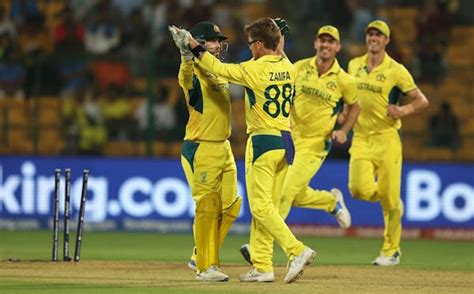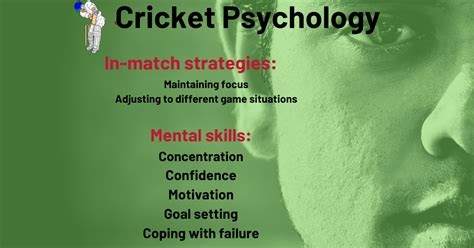Discover essential nutrition tips for young cricketers to enhance performance, skill development, and long-term benefits in youth cricket. Avoid common mistakes and plan effectively.Introduction:
In the competitive world of youth cricket, the path to success extends beyond just practice and skill acquisition; it also hinges crucially on nutrition. Young cricketers are not just athletes; they are developing individuals whose bodies and minds need the right fuel to excel. Nutrition plays a foundational role in enhancing performance, improving recovery, and supporting skill development on the field. This article emphasizes the importance of a well-rounded diet tailored for aspiring cricketers, highlighting essential nutrients that can unlock their full potential. From strategic meal planning to avoiding common pitfalls, we will guide you through the vital elements of nutrition that can set the stage for long-term success in youth cricket. Join us as we explore how smart dietary choices can propel young players toward their goals.
Understanding The Importance Of Nutrition In Youth Cricket
Nutrition in youth cricket plays a pivotal role in not just improving performance but also in fostering long-term athletic development. The right nutrition is essential for young cricketers as it supports their growing bodies, enhances recovery, and optimizes performance during practice and games. Nutrition influences every aspect of a young athlete’s life, from physical capability to mental sharpness and resilience on the field.
A balanced diet that meets the energy requirements of young cricketers can significantly impact their training outcomes. Given that cricket often involves long hours under the sun and intense physical activity, young athletes require a well-rounded intake of macronutrients—carbohydrates, proteins, and fats—as well as essential micronutrients such as vitamins and minerals.
Carbohydrates are crucial for providing the necessary energy; they fuel muscle performance during training and matches. Proteins are vital for repair and recovery, helping young cricketers to build muscle and heal from injuries. Healthy fats contribute to overall energy levels and hormone production, which is essential for growth and development during adolescence.
Moreover, proper nutrition in youth cricket can enhance focus and cognitive performance, both of which are critical when making split-second decisions on the field. When cricketers eat well, they are more likely to feel motivated, alert, and ready to tackle the challenges of the game.
Understanding the importance of nutrition is fundamental for young cricketers aiming to develop their skills and perform at their best. By prioritizing their dietary needs, they not only improve their current performance but also set the foundation for a long and successful cricketing career.
Key Nutrients That Boost Performance In Young Cricketers
When considering nutrition in youth cricket, it is essential to focus on key nutrients that can enhance performance on the field. These nutrients not only support physical development but also help in improving agility, endurance, and overall skill execution. Here are some of the vital nutrients that young cricketers should incorporate into their diets:
- Carbohydrates: The primary source of energy for athletes. Young cricketers should consume complex carbohydrates like whole grains, fruits, and vegetables to fuel their training sessions and matches.
- Proteins: Crucial for muscle repair and growth. Incorporating lean protein sources such as chicken, fish, eggs, and plant-based options like legumes can help in muscle recovery after intense gameplay.
- Fats: Healthy fats are important for overall health and should not be overlooked. Foods rich in omega-3 fatty acids, such as walnuts and fatty fish, can support brain function and reduce inflammation.
- Vitamins and Minerals: Micronutrients like calcium, vitamin D, and magnesium are essential for bone health and muscle function. Dark leafy greens, fortified dairy products, and nuts can be excellent sources.
- Hydration: While not a nutrient in the traditional sense, staying hydrated is critical for performance. Proper hydration supports cardiovascular function and maintains endurance levels during matches. Young athletes should aim to drink water regularly, especially before and after games.
By ensuring a balanced intake of these key nutrients, young cricketers can optimize their performance and lay a solid foundation for long-term athletic success. Careful attention to nutrition in youth cricket can truly make a difference in the way they play and develop their skills.
How Proper Nutrition Affects Skill Development In Youth Cricket
Proper nutrition plays a vital role in the skill development of young cricketers, providing them with the necessary fuel to improve their physical abilities and enhance their game performance. The right balance of nutrition in youth cricket can lead to improved agility, strength, and endurance, all of which are critical for executing complex cricket skills effectively.
Young athletes require specific nutrients to support their training regimens. Carbohydrates are essential for sustaining energy levels, particularly during long practice sessions or matches. When young cricketers consume an adequate amount of carbohydrates, it helps them maintain focus and coordination, leading to better performance in batting, bowling, and fielding activities.
Protein is equally important as it aids in muscle repair and growth. Engaging in intensive physical training necessitates higher protein intake for young players, which can lead to improved muscle strength and better skill execution. A well-balanced diet rich in protein can help develop the muscular endurance needed for peak performances at crucial game moments.
Additionally, hydration cannot be overlooked when discussing nutrition in youth cricket. Staying well-hydrated ensures that young athletes can maintain their stamina throughout matches and training sessions. Dehydration can impair cognitive functions, such as decision-making and reaction times, which are essential for skillful play on the field.
Proper nutrition is not merely about meeting calorie requirements; it is about delivering the right nutrients that directly influence the ability to develop and enhance cricketing skills. Implementing a nutrition-rich diet can provide young cricketers with a significant advantage, setting a strong foundation for their future performance in the sport.
Meal Planning Tips For Young Cricketers Before Matches
Proper nutrition in youth cricket is essential for optimizing performance, especially before a match. Here are some meal planning tips to ensure young cricketers are fueled effectively:
Incorporating these meal planning tips into the pre-match routine will ensure that young cricketers are properly nourished and ready to perform at their best, reinforcing the crucial connection between nutrition in youth cricket and athletic performance.
Common Nutritional Mistakes Young Cricketers Should Avoid
Navigating the world of nutrition in youth cricket can be challenging for young athletes and their coaches. Below are some common nutritional mistakes that young cricketers often make, which can hinder their performance and development.
- Skipping Meals: Many young athletes may think that skipping meals will help them maintain a healthy weight. However, this can lead to decreased energy levels and poor concentration during practices and matches.
- Over-reliance on Processed Foods: Fast food and processed snacks are convenient options, but they often lack essential nutrients. Young cricketers should prioritize whole foods like fruits, vegetables, lean proteins, and whole grains as part of their diet.
- Inadequate Hydration: Staying hydrated is crucial for optimum performance. Many athletes forget to drink enough water, especially in hot weather. Young cricketers should develop a habit of regularly sipping water throughout the day, not just during games.
- Neglecting Post-Match Recovery: After matches, young cricketers may neglect their nutritional needs, missing the critical window for recovery. Consuming a balanced meal or snack that includes both protein and carbohydrates shortly after playing can significantly aid recovery.
- Ignoring Individual Nutritional Needs: Each athlete’s nutritional requirements may differ based on factors like age, weight, and level of activity. It’s important for young athletes to consult with a nutritionist or coach who can provide personalized guidance.
By being aware of these common nutrition in youth cricket mistakes and making necessary adjustments, young cricketers can improve not just their performance on the field, but also their overall health and well-being.
Long-Term Benefits Of Nutrition In Youth Cricket Development
Understanding the long-term benefits of nutrition in youth cricket is essential for aspiring young cricketers and their coaches. Proper nutrition not only enhances immediate performance but also lays a strong foundation for a healthy and successful cricketing career.
Here are some of the long-term benefits of focusing on nutrition:
| Benefit | Description |
|---|---|
| Improved Physical Development | A balanced diet supports optimal growth and development of muscles, bones, and tissues, essential for young athletes. |
| Enhanced Recovery | Proper nutrition aids in quicker recovery from training and matches, reducing the risk of injuries and fatigue. |
| Increased Endurance | A well-nourished athlete can sustain higher levels of performance for longer periods, particularly in intensive match situations. |
| Long-Term Health Benefits | Maintaining a healthy diet during youth can lead to lifelong healthy eating habits, reducing the risk of chronic diseases later in life. |
| Mental Sharpness | Nutrient-dense foods contribute to better concentration and mental agility, which are crucial for strategic decision-making during the game. |
Incorporating these aspects of nutrition in youth cricket into daily routines will not only improve performance on the field but also promote overall wellness that benefits players throughout their lives. Fostering a culture of nutritious eating among young cricketers will ensure they are prepared for the physical and mental demands of the sport for years to come.
Frequently Asked Questions
Why is nutrition important for young cricketers?
Nutrition is vital for young cricketers as it supports their physical growth, boosts energy levels, enhances performance, and aids in recovery, all of which are crucial for their development in the sport.
What specific nutrients should young cricketers focus on?
Young cricketers should focus on a balanced diet rich in carbohydrates for energy, proteins for muscle repair, healthy fats for overall health, vitamins, and minerals to support bodily functions and maintain immune health.
How can hydration affect a young athlete’s performance?
Staying hydrated is essential as it helps maintain optimal performance levels, prevents fatigue, and reduces the risk of cramps and heat-related illnesses, allowing young athletes to play at their best.
What role does meal timing play in athletic performance?
Meal timing is important as consuming pre-game meals helps provide the necessary energy and focus, while post-game nutrition aids in recovery and replenishing lost nutrients.
Can poor nutrition impact a young cricketer’s growth?
Yes, inadequate nutrition can hinder a young cricketer’s physical growth and development, potentially leading to fatigue, reduced performance, and an increased risk of injuries.
How can coaches support players’ nutritional needs?
Coaches can support players’ nutritional needs by providing education on healthy eating habits, integrating nutrition-focused discussions into training programs, and possibly collaborating with nutritionists.
What is the impact of dietary supplements on youth athletes?
While some dietary supplements may benefit young athletes under professional guidance, it is best for them to obtain nutrients from whole foods, as supplements can sometimes lead to imbalances and side effects if misused.








